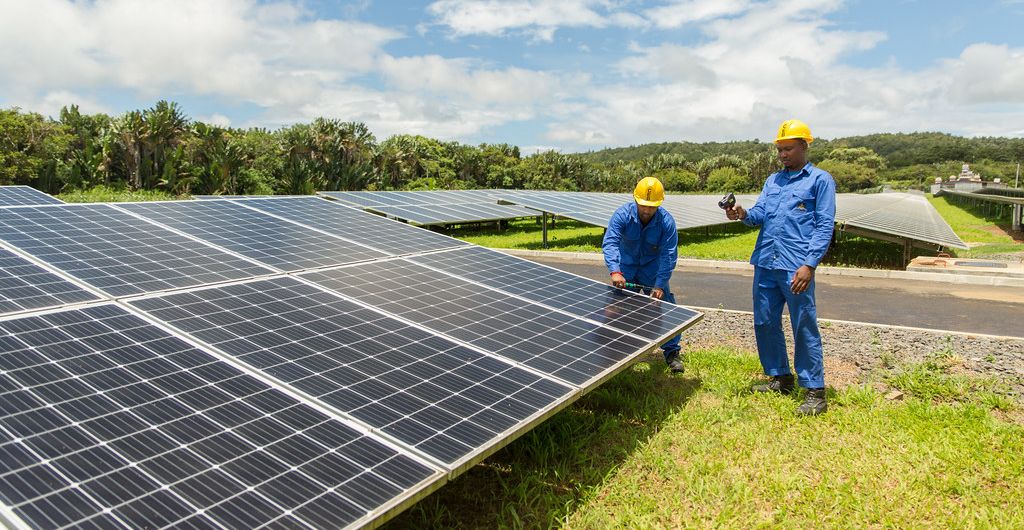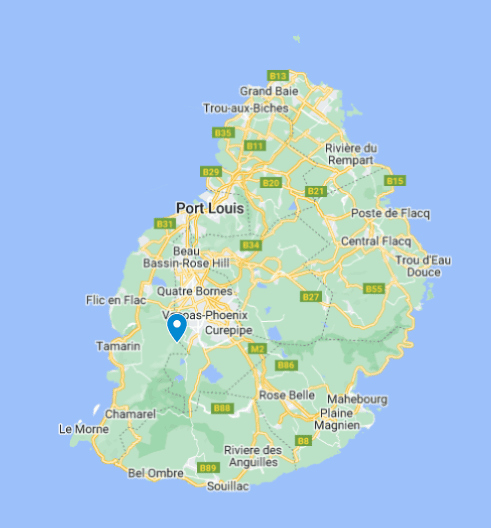Commissioned in April 2019, this project makes a substantial contribution to Mauritius’ renewable energy goals, accounting for an impressive 21% of the island’s total installed solar power capacity. The 17.5 MW Solar Power project provides power to the Central Electricity Board on the island of Mauritius and reduces the electricity grid’s heavy & costly dependence on fossil fuel-based power generation. In addition to the positive impact on the country’s power generation mix, the project brings significant beneficial impact on the local communities, providing clean drinking water and irrigation as well as supporting local infrastructure projects. The project supports local agriculture, with herbs, ginger and sweet potatoes planted near the facility.
Benefits: Climate & Environment
Mauritius faces a significant challenge: its electricity production relies heavily on imported fossil fuels, leading to high costs and environmental concerns. To tackle this challenge and create a cleaner future, we are supporting a large-scale solar power project. This project not only reduces greenhouse gas emissions but also promotes energy independence and potentially lower electricity costs. This initiative aligns perfectly with the ambitious national ‘Mauritius Sustainable Island’ strategy, which aims for a significant shift towards renewable energy. The strategy has a target of integrating 35% renewable energy into the energy mix by 2025, with the ultimate goal of phasing out carbon-based power production entirely by 2030.
Key Benefits
- The project’s renewable energy activity displaces fossil-fuelled electricity production from the grid, as well as reducing the cost and environmental impacts associated with the importation of fossil fuels.
- The project’s emission factor is assessed to be 0.9915 tCO2e per megawatt (MW) of power produced. This means that for every MW of production the project prevents 0.9915 tonnes of emissions being generated by the country’s fossil fuel power facilities.
- The project has been operating continually and satisfactorily since its start of operations in 2016. The latest performance reports show that the plant achieved a total of 38,751 tonnes CO2e verified emission reductions during the verification period (01/11/21 – 30/11/22) and a further 10,877 tonnes CO2e in the following 6-months (01/12/2022 – 31/05/2023).
- The project supports local agriculture, with various herbs, ginger and sweet potatoes planted near the facility. There are plans for other types of crops to be grown in the future.
Benefits: Social & Economic
In addition to the environmental advantages, the project activity also brings about significant socio-economic benefits to the region, including improved infrastructure and employment opportunities for local residents.
During the construction phase of the plant, the project provided jobs for 200 individuals, injecting vitality into the local economy. Furthermore, with 16 full-time positions created for its operational phase, the project continues to contribute to sustainable economic development within the community.


Project Verification


